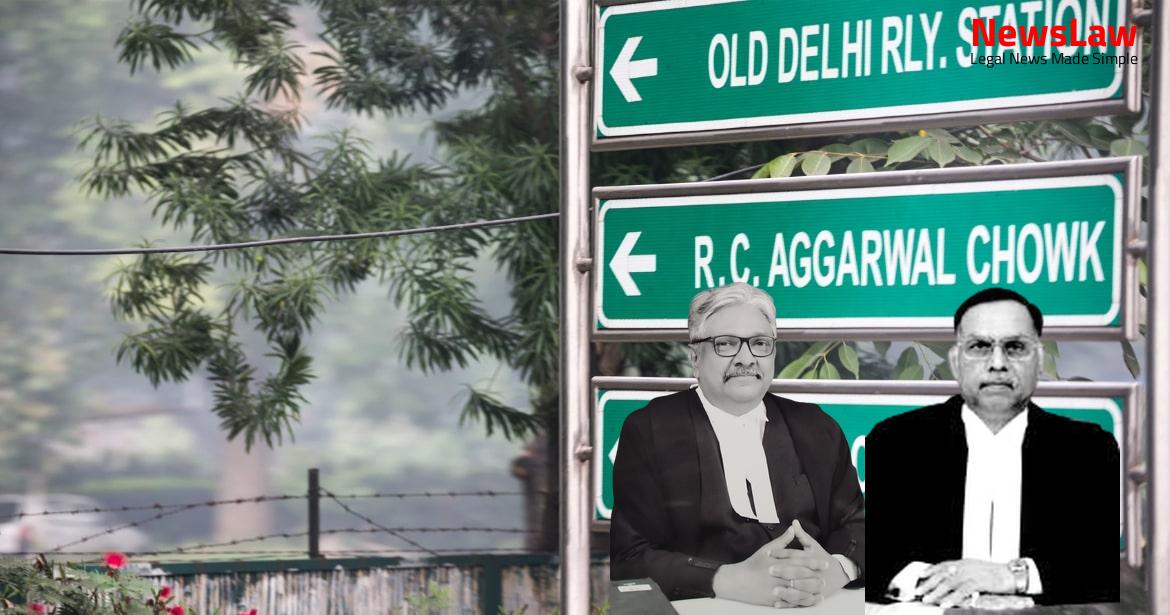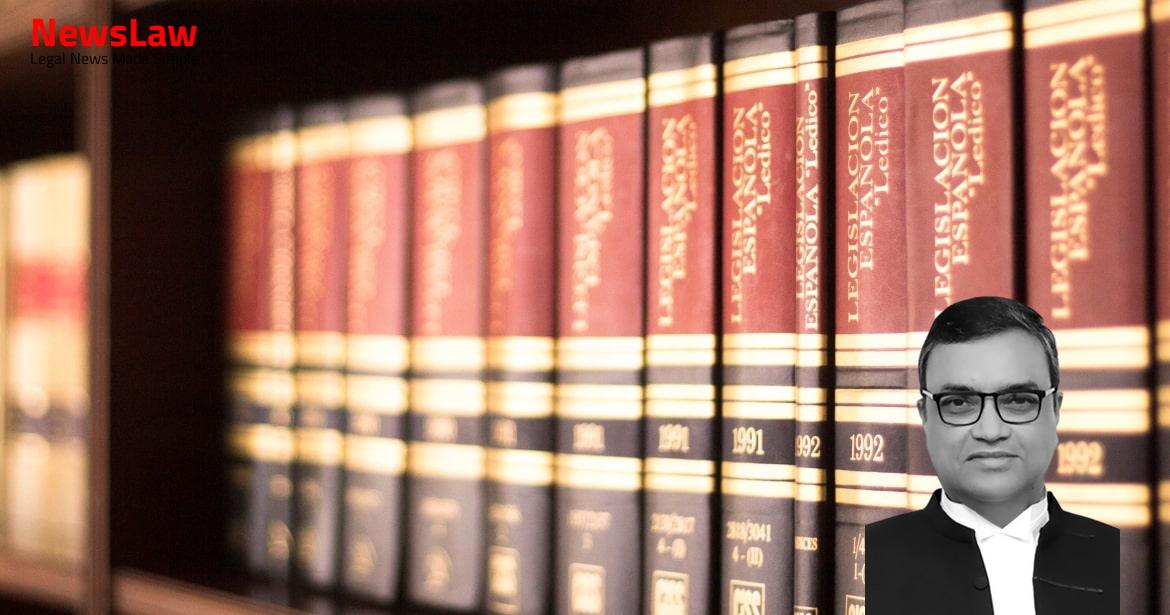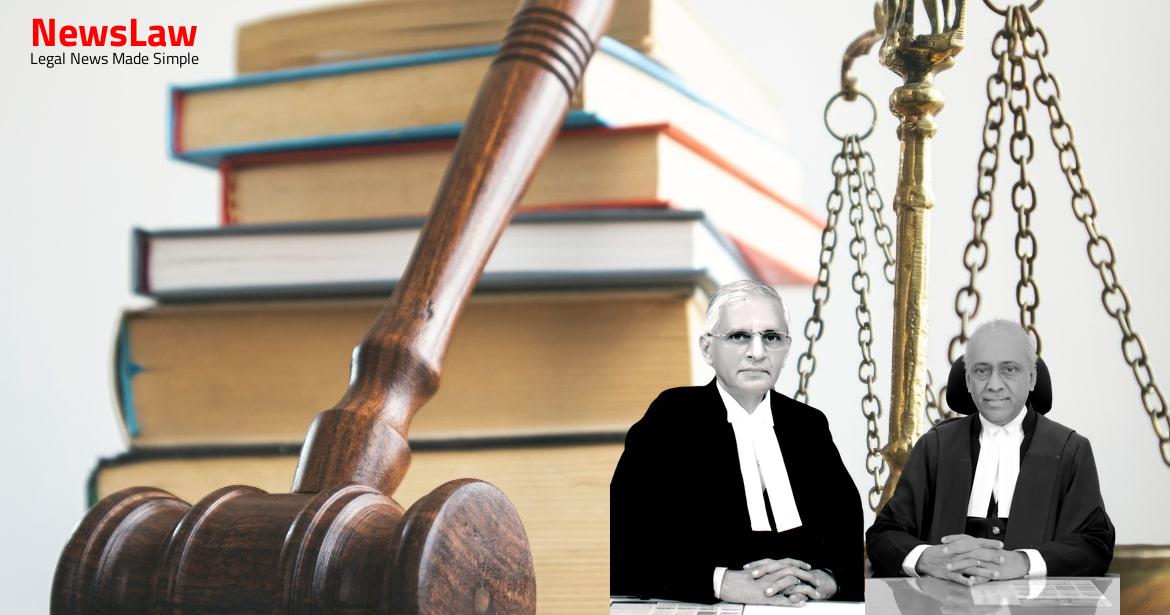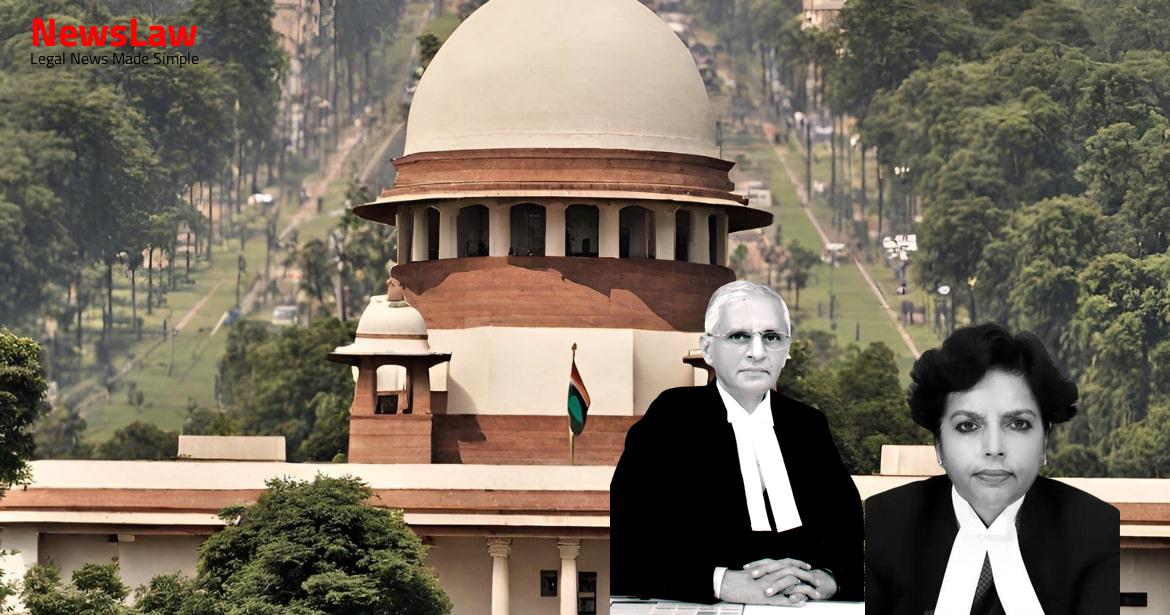In a landmark decision by the Supreme Court of India, a critical case involving non-usage of rented premises was resolved. The judgement sheds light on the legal intricacies surrounding business activities and non-usage claims under the Maharashtra Rent Control Act. The ruling carries significant implications for both landlords and tenants. Stay tuned for insights into this pivotal case.
Facts
- The suit premises were used for various businesses like selling readymade garments and running a food center from 1993 to 2006.
- Revision was dismissed citing Section 115 of the Code of Civil Procedure, relying on the deposition of the second defendant.
- Tenancy in favor of the minor (first defendant) was ruled out based on Section 11 of the Indian Contract Act and reciprocal obligations.
- Appeal was allowed as the case of sub-tenancy and nuisance was denied.
- Letters from the defendants indicated that the second defendant had control over the premises and was in possession.
- Non-use of the premises started around July 2005, resulting in the possibility of nuisance due to the food corner business.
- Tenancy was found to be created in favor of the second defendant, despite rent receipts being in the name of the first defendant.
- The license for the premises was restricted to a specific period.
- The trial court found lack of evidence in the original landlord’s objection to the businesses being conducted by the second defendant.
- The suit came to be filed based on the defendants’ actions regarding the business conducted in the premises.
- The reason for creating tenancy in the name of the first defendant on the advice of an Astrologer or Numerologist was found unbelievable.
- The Appellate Court found discrepancies between rent receipts and the defendant’s claims about the premises being under the second defendant’s name since inception.
- The premises were later sublet to a third party during specific periods.
- Nuisance claims were based on the nuisance and pollution caused by the food preparation business conducted on the premises.
- The suit filed by the original plaintiff (Shantaben Purushottam Kakad) for eviction under various sections of the Maharashtra Rent Control Act was decreed against the appellants.
- Defendants proved that the second defendant was using the suit premises for selling books with a license under The Shops and Establishments Act for 2006-2007.
- Illegal subletting to Mr. Raja lacked sufficient details for validation.
- Rent receipts indicated the first defendant as the tenant, with the second defendant utilizing the premises for his benefit.
- Nuisance was established based on evidence presented by PW1.
- First defendant did not rescind the contract after reaching majority, indicating a gap of 13 months in non-use.
- Businesses of book stall and foodstuff were considered incompatible.
- Second defendant could not prove possession prior to 01.02.1973 for protected sub-tenancy or tenancy claim.
- High Court affirmed findings of the Appellate Court.
Also Read: Coal and Coke Tax Refund Case: Supreme Court’s Landmark Decision
Arguments
- Learned counsel for the appellant argued that none of the grounds presented by the petitioner have been established.
- The suit premises were rented in the name of the first defendant, who was only five years old based on astrologer’s advice.
- Non-user claim is being rebutted.
- There was no illegal sub-tenancy or nuisance reported.
- The license for the premise was in the first defendant’s name despite being a minor in 1971.
- The second defendant was managing the business, ruling out any tenancy in his favor.
- The counsel for the respondents supported the order and argued that non-user case is clearly established.
Also Read: Land Dispute Resolution: High Court Overturns Trial Court’s Decision
Analysis
- The case revolves around the non-usage of the premises for a continuous period of six months prior to the suit.
- The appellants’ argument is centered on the lack of proper use of the rented premises.
- Registration certificates play a crucial role in determining the legality of business operations within the premises.
- The case involves allegations of subletting and unlawful usage by the defendants.
- The business activities in the premises include book store, garments, and fast food, but were often short-lived.
- Evidence and witness testimonies are crucial in establishing the non-usage of the premises for the designated purpose.
- Nuisance and annoyance caused by certain business activities add complexity to the case.
- The lack of proper registration and continuous changes in business operations further complicate the legal standing.
- The timeline of business activities and registration renewal dates are significant factors in determining the non-usage of the premises.
- The burden of proof lies on the landlord to establish the non-usage of the premises without reasonable cause.
- Two courts found non-user ground under Section 16(1)(n) of Maharashtra Rent Control Act, 1999 established.
- No merit found in the application for appeal after Special Leave.
- A fine of Rs.4,000/- was paid.
- Additional evidence can only be admitted if grounds of Order 41 Rule 27 are established.
Also Read: Landmark Supreme Court Judgment on Dowry Death Allegations
Decision
- The High Court judgment regarding the matter of RPC was considered
- No interference deemed necessary with the High Court judgment
- Consequently, the appeal is dismissed
Case Title: NILESH LAXMICHAND Vs. SHANTABEN PURUSHOTTAM KAKAD (SINCE DECEASED) BY LRS
Case Number: C.A. No.-004268-004268 / 2019



